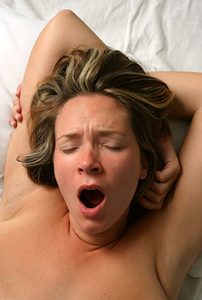 Sleep is absolutely essential for the health and wellbeing of both the body and mind. It is the time for the body to repair and rejuvenate. Adults need around 7-8 hours sleep a night, more when stressed or run down.
Sleep is absolutely essential for the health and wellbeing of both the body and mind. It is the time for the body to repair and rejuvenate. Adults need around 7-8 hours sleep a night, more when stressed or run down.
Sleep deprivation or poor quality sleep impairs mental and physical function, including that of the immune system, and people who don’t get enough sleep are at increased risk of certain health conditions such as obesity, depression and cardiovascular disease.
The most common causes of insomnia are psychological. The following lifestyle and dietary suggestions can help counteract the effects of stress and worry as well as other factors which can lead to a poor nights sleep.
Eliminate inhibitors of sleep
- Avoid stimulants; coffee, tea, chocolate and sugar, especially in the late afternoon. Turn the TV or computer off half an hour before bed
- Alcohol – alcohol disrupts serotonin, an important initiator of sleep
- Nocturnal Hypoglycemia – if blood sugar levels drop too low, hormones are released stimulating the brain and signaling that its time to eat. A snack before bed can help avoid this – choose complex carbohydrates such as oatcakes
- Avoid drinking large amounts within half an hour of bed to prevent waking in the night to use the toilet
- Late nights – at 11pm the adrenal glands kick in again releasing stimulating hormones, giving us that ‘second wind’ which can inhibit sleep, so aim to get to bed before 10.30pm for best quality sleep
Promoters of quality sleep
- A dark room promotes melotonin production, an important neurotransmitter needed to induce & sustain sleep
- Set a regular bedtime, the body gets used to falling asleep at a certain time. If you need to change your bedtime do it gradually by 15 minutes each night
- Practice relaxation techniques before bedtime, or a regular pre-sleep ritual which prepares the body for sleep; a bath with lavender oil, hypnosis CD, deep breathing, reading or warm drink
- Tryptophan is the amino acid precursor to serotonin & melatonin, important regulator of sleep. A tryptophan rich snack before bed may help promote restful sleep. Try banana, cottage cheese or pumpkin seed butter on an oatcake
- Regular exercise improves sleep quality, however avoid exercising close to bedtime.
Natural sedatives
- Magnesium – Natures relaxation mineral. Insomnia is one of the main symptoms of a magnesium deficiency. Increase dietary intake of green leafy vegetables; chard, beet greens, spinach, spring greens, kale. Whole-grains buckwheat, millet, rye, brown rice, also almonds, cashews, brazil nuts, figs, dried apricots
- Valerian, lemon balm and passionflower all have sleep promoting properties. Have any of the above as herbal tea half an hour before bed.
Persistent poor sleep and insomnia may require more in depth investigation and therapy. Nutritional therapy can help by finding and undressing the underlying cause of the problem, which may be either or both psychological and physiological, then making dietary and lifestyle adjustments as well a supplement program to suit the individual.
